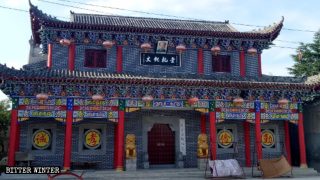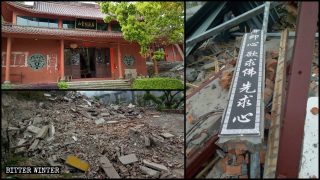Even the venues where familial clans meet to honor their ancestors and celebrate important events have become targets of the CCP’s crackdown on religion.
by Deng Jie
Filial piety is one of the essential virtues in China’s traditional culture that has greatly influenced Chinese society’s formation throughout centuries. Children are taught from a young age to respect and obey their parents and the elderly, take care of them throughout their lives, and continue honoring them after death.
Traditionally, ancestral temples are built for the latter purpose. Family clans—groups of people related through the male line and sharing the same surname and ancestors—meet there to pay tribute to their forebears and celebrate important events, like weddings and funerals. But the CCP treats these gatherings in ancestral temples as “endangering grassroots governments” and converts them into Party propaganda bases and public activity venues.
Xiaogan, a prefecture-level city in the central province of Hubei, is closely connected to filial piety: its name hails from the Chinese word “Xiao,” literally meaning “filial piety.” In May, the government of Xiaogan-administered Maochen town convened the heads of all local clans for a meeting. The participants were informed that all clan activities had been banned, and the government is taking over the town’s ten ancestral temples to convert them for public use. Like during the Cultural Revolution, the authorities claimed to be destroying “the Four Olds”—old customs, culture, habits, and ideas—to create new ones.
“It’s a political task to convert ancestral temples,” a government insider told Bitter Winter. “The government demands to complete temple conversions in a week’s time. Any ancestral temple that refuses to cooperate would be demolished.”
In June, the town’s Ailian Hall, built by the Zhou clan, was converted into a cultural activity center for the elderly.


“Authorities sent personnel to cover with red cloths everything related to offering sacrifices to ancestors in the temple and post slogans promoting the Communist Party,” a village resident surnamed Huang recalled. “They also wanted to hang a Xi Jinping portrait in the central hall, where tablets to commemorate all ancestors are enshrined, but the head of the clan vigorously refused.”
The other nine ancestral temples were also rectified. Slogans promoting the Cultural Revolution’s motto of “destroying the Four Olds” have been displayed in some of them.
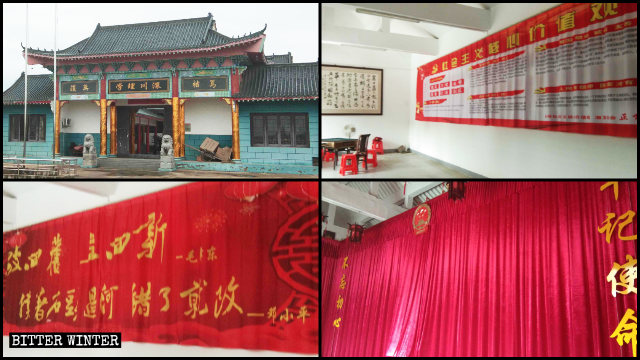

“Since the government took over the ancestral temples, we have to report to local officials a week before holding any activity to pay tribute to our ancestors,” the head of one of the Maochen’s repurposed temples complained. “We can offer sacrifice to our forefathers only with the government’s permission now.”
The Wang clan ancestral temple in Hubei’s Shiyan city was converted into a cultural auditorium in May. All statues of ancestors were demolished and replaced with bookshelves with CCP propaganda books. Exercise equipment was installed outside the venue to wipe out any resemblance to a temple.


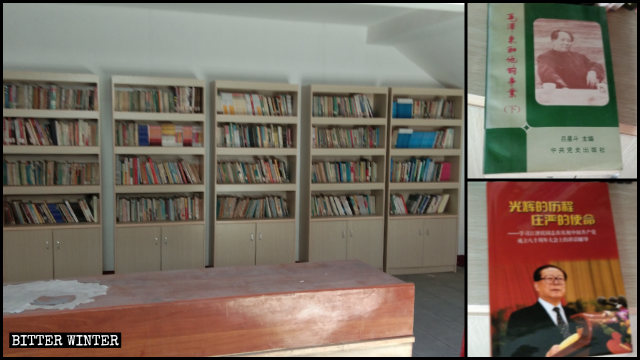

A government insider from Hubei’s Suizhou city told Bitter Winter that a provincial inspection team explicitly indicated during a visit in July last year that the central government was “advancing the rectification and cleanup of ancestral temples.” Meaning, they would be managed by the state, not clans.
“All clan activities have been banned in temples, and the construction of new ones is prohibited,” the source said. “Local officials were ordered to destroy temples’ signboards.”
Similar crackdowns are carried out in the southeastern province of Jiangxi. Nearly 30 ancestral temples have been repurposed in Duchang county, administered by the prefecture-level city of Jiujiang.
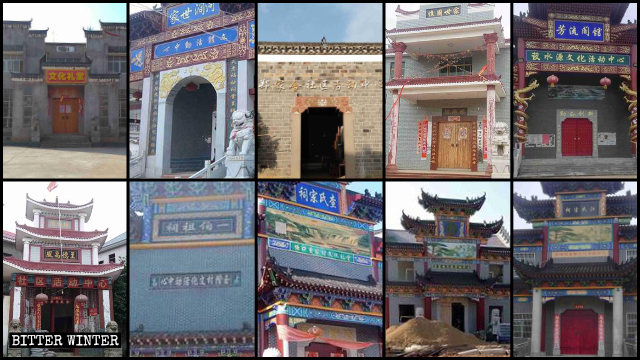

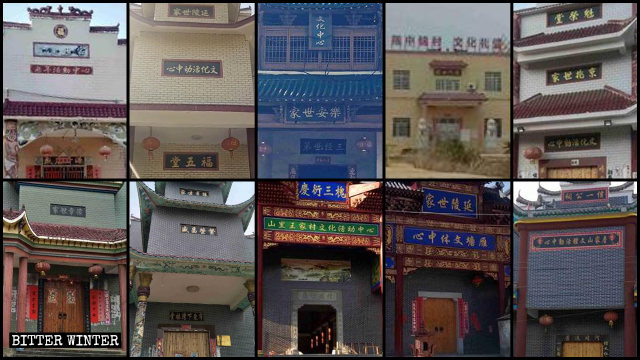

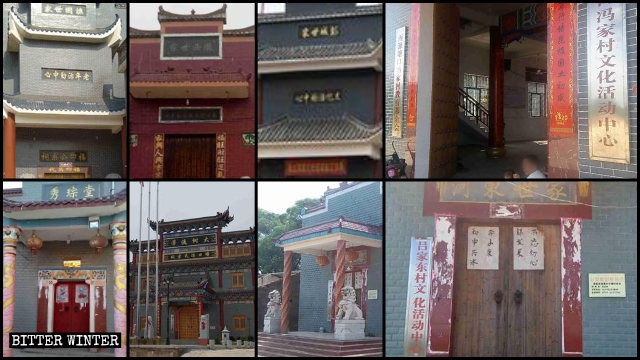

“Instead of honoring forefathers or holding family events, strangers now play mahjong, sing, and dance in ancestral temples,” a villager commented angrily.
The Gan clan ancestral temple in Jiujiang’s Yongxiu county has been converted into a Party history education base and is now used to spread CCP propaganda.
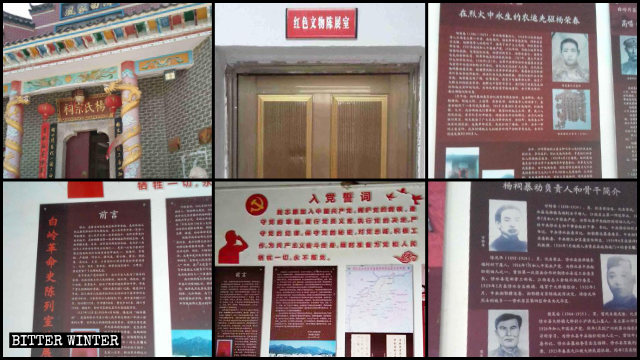

“Ancestral temples were places to preserve the memory of clans’ forefathers but are now turned into propaganda bases,” a resident from a village in Yongxiu county said helplessly. “This is disrespect for our ancestors. We are very sad but can do nothing about it.”
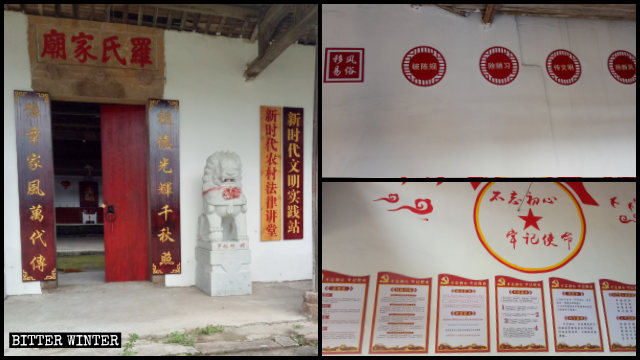

“The state fears that it is much harder to manage united people, like clans; that is why it cracks down on ancestral temples,” a Yongxiu county government employee said.







